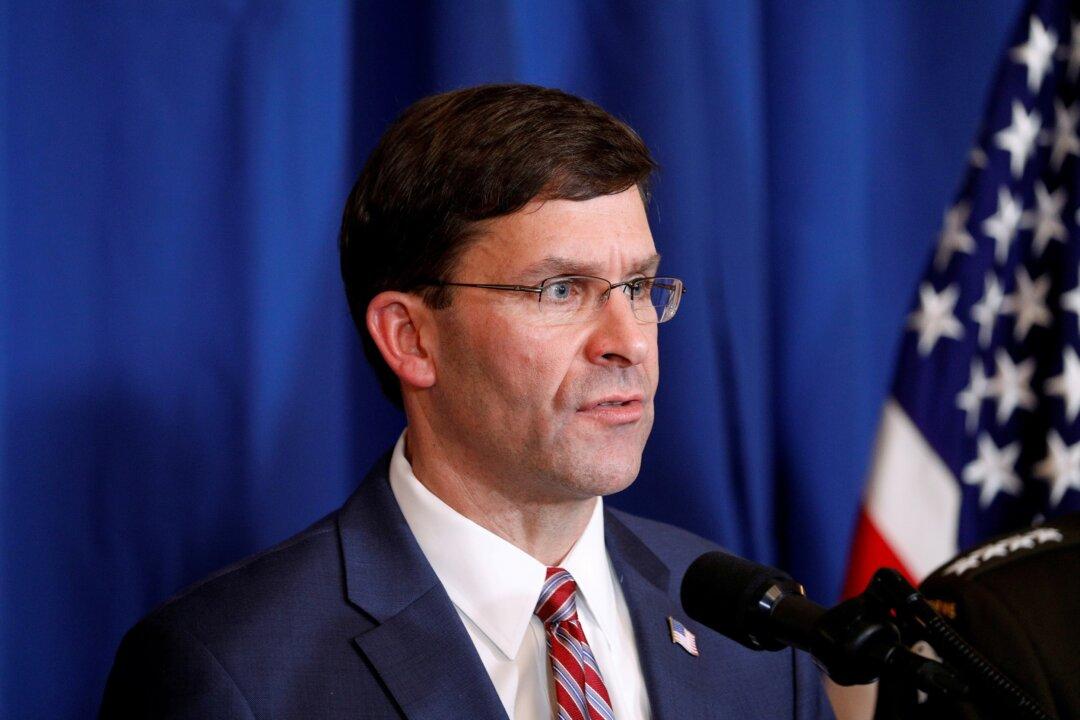The Department of Defense (DOD) announced on Jan. 23 that it will be putting in place more comprehensive vetting measures for international military students and increasing patrols at the Pensacola Naval Air Station in Florida, following a tragic shooting at the naval base last month that left three people dead.
Defense Secretary Mark Esper said during a press conference at NAS-Pensacola on Thursday that the Pentagon would be improving vetting procedures for international students “to prevent such acts from happening again.”





